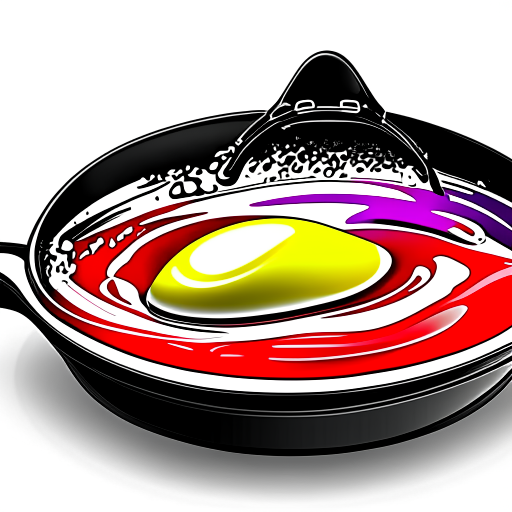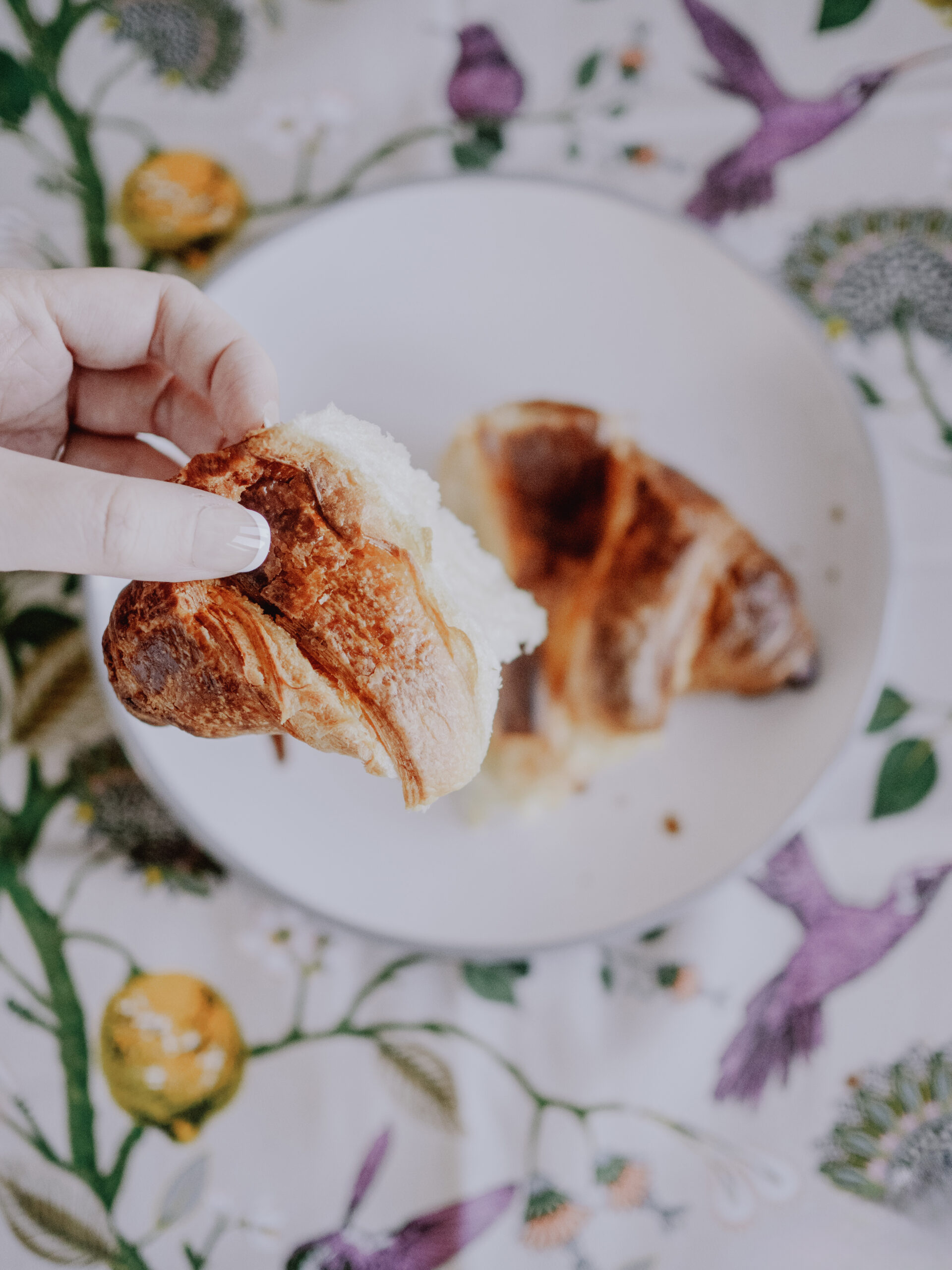Whether you’re a seasoned chef or a novice cook, precision is key when creating culinary masterpieces. That’s why the power of food scales cannot be underestimated in the world of precision cooking. At Tastepan.com, we understand the importance of accurate measurements when it comes to achieving the perfect balance of flavors. In this article, we will explore how food scales can elevate your cooking game, allowing you to not only follow recipes with precision but also experiment and create your own delicious dishes. Get ready to discover the untapped potential of food scales and take your cooking skills to new heights.
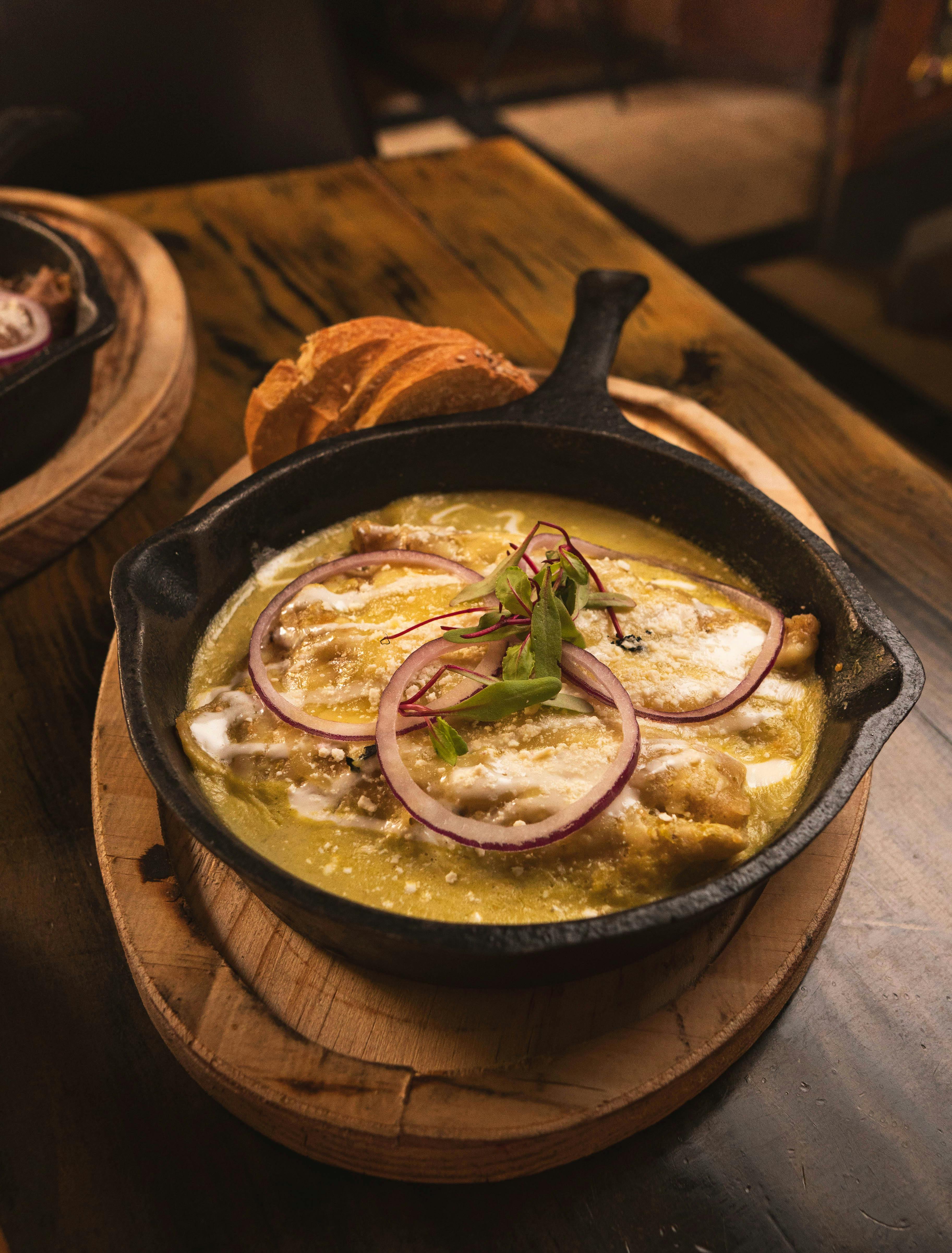
Benefits of Using Food Scales
When it comes to precision cooking, one of the most valuable tools in your kitchen is a food scale. Using a food scale offers numerous benefits that can greatly improve your culinary experience.
Accurate Measurements
One of the main advantages of using a food scale is the ability to obtain precise and accurate measurements of ingredients. Unlike using measuring cups or spoons, which can be subjective and lead to inconsistencies in your recipes, a food scale provides exact measurements in grams or ounces. This level of accuracy ensures that your dishes turn out just the way you want them every time. Whether you’re baking a cake or preparing a savory dish, using a scale will give you confidence in your measurements and result in more consistent, delicious results.
Consistent Results
Consistency is key in cooking, especially if you have signature dishes that you want to replicate exactly. By using a food scale, you can ensure that you’re using the same amount of ingredients each time you prepare a particular recipe. This consistency of measurements will lead to consistent flavors and textures in your dishes, making them easily recognizable and loved by all. Whether it’s a delicious sauce or a perfectly grilled steak, a food scale will help you achieve the same great results with each preparation.
Portion Control
Maintaining a healthy lifestyle often involves portion control, and a food scale can be an invaluable tool for achieving this. By accurately weighing your food, you can keep track of the calories and nutrients you consume. This is particularly helpful if you’re following specific dietary requirements or trying to manage your weight. With a food scale, you can easily portion out your meals, ensuring that you’re eating the right amount of food for your needs. Whether you’re trying to lose weight or simply maintain a healthy lifestyle, a food scale can be a valuable aid in reaching your goals.
Types of Food Scales
Food scales come in various types, each with its own features and benefits. Understanding the different types can help you choose the one that best suits your needs.
Analog Scales
Analog scales are the traditional, non-electronic scales that use a spring mechanism to measure weight. These scales are simple and easy to use, with a dial or needle indicating the weight. They are often more affordable compared to digital or smart scales. However, they may not be as accurate or precise as their digital counterparts. Analog scales also lack some of the advanced features found in digital scales, such as tare function and multiple measurement units. Nevertheless, analog scales can still be a reliable option for basic cooking needs.
Digital Scales
Digital scales have become increasingly popular in recent years due to their accuracy and versatility. These scales use electronic sensors to measure weight and provide a digital display of the measurements. Digital scales offer features such as tare function, which allows you to deduct the weight of containers or additional ingredients, and multiple measurement units, allowing you to switch between grams, ounces, pounds, and more. They also tend to have a higher weight capacity compared to analog scales. With a digital scale, you can obtain precise measurements with ease and have more control over your cooking.
Smart Scales
Smart scales take food weighing to a whole new level by integrating technology and connectivity. These scales are designed to sync with your smartphone or tablet through dedicated apps or wireless connectivity. They offer features such as recipe tracking, nutritional analysis, and even interactive cooking guides. Smart scales can calculate the nutritional information of your ingredients and provide real-time feedback on your cooking progress. Although smart scales are more expensive compared to analog or digital scales, they offer convenience and advanced functionality that can greatly enhance your cooking experience.
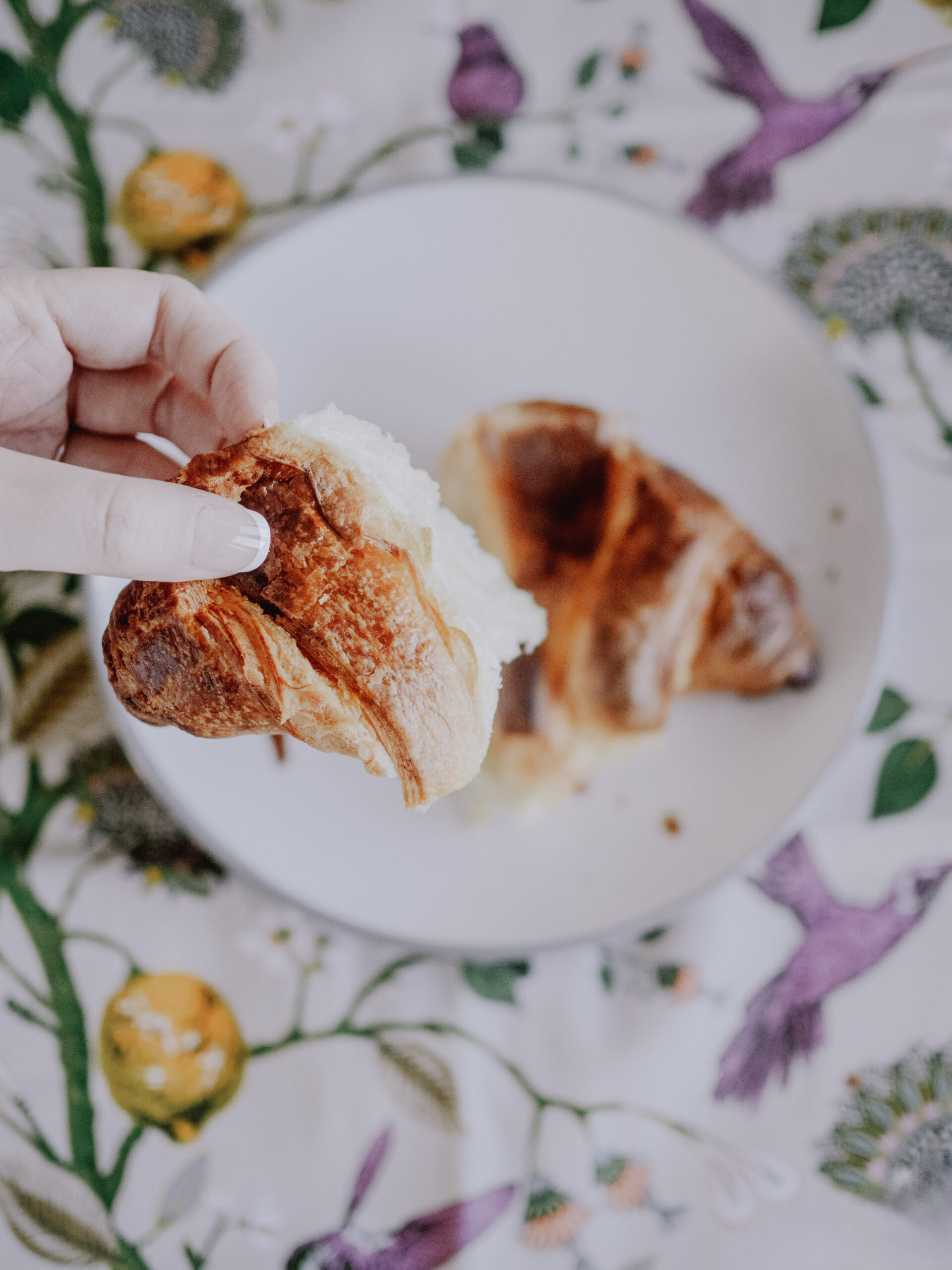
Features to Consider When Choosing a Food Scale
When choosing a food scale, there are several important features to consider. These features will determine the usability and functionality of the scale, ensuring that it meets your specific cooking needs.
Weight Capacity
The weight capacity refers to the maximum weight that the scale can accurately measure. Consider the types of ingredients you typically work with and choose a scale with a weight capacity that accommodates your cooking habits. If you frequently cook large meals or need to weigh heavy items, opt for a scale with a higher weight capacity.
Measurement Units
Make sure the food scale offers the measurement units that you prefer to work with. While most scales provide grams and ounces, some may also offer additional units like pounds, kilograms, or even milliliters. Choosing a scale with multiple measurement units can provide added convenience and flexibility in your cooking.
Tare Function
The tare function is a valuable feature that allows you to zero out the weight of a container or any additional ingredients you place on the scale. This feature is especially useful when you need to measure multiple ingredients in the same container, as it eliminates the need for manual calculations. Look for a scale with an easy-to-use and accurate tare function for added convenience and precision.
Accuracy and Precision
Accuracy and precision are crucial factors to consider when selecting a food scale. Look for a scale that provides accurate readings with minimal deviation. Pay attention to the scale’s sensitivity and ensure that it can measure small increments, particularly if you work with precise recipes that require precise measurements.
Display and Readability
The display of the food scale should be easy to read and understand. Consider the size and clarity of the display, as well as any additional features like backlights or large digits for better visibility. A clear and readable display ensures that you can easily obtain accurate measurements without straining your eyes.
Auto Shut-off
To conserve battery life and prevent accidental power drains, many food scales come with an auto shut-off feature. This feature automatically turns off the scale after a period of inactivity. Look for a scale with an adjustable auto shut-off function or a long idle time to suit your cooking pace and preferences.
Platform Size
The size of the platform or weighing surface is an important factor to consider depending on the size of the containers or ingredients you typically work with. A smaller platform may limit your ability to measure larger containers or ingredients comfortably. Conversely, a larger platform provides more space and flexibility when weighing various items. Consider the available space in your kitchen and the size of your usual cooking tasks when choosing a scale with an appropriately sized platform.
How to Use a Food Scale
Using a food scale is relatively straightforward and can be mastered with a few simple steps. By following these guidelines, you can ensure accurate measurements and precise cooking results.
Calibrating the Scale
Before using your food scale, it’s essential to calibrate it properly to ensure accurate readings. Calibration instructions can usually be found in the scale’s user manual. Typically, calibration involves pressing a designated button or following a specific sequence of actions. Make sure to calibrate the scale on a level surface and avoid contact with any objects that may interfere with the calibration process.
Placing the Container
If you need to weigh ingredients in a container, place the empty container on the scale first. Ensure that the container is clean and dry to avoid any inaccuracies. Additionally, consider the weight of the container itself by subtracting its weight using the tare function, if available. This will allow you to obtain the exact weight of your ingredients without the interference of the container’s weight.
Zeroing the Scale
Once the container is in place, press the tare or zero button on your scale. This will reset the scale to zero, effectively subtracting the weight of the empty container from the overall measurement. The scale is now ready to measure the precise weight of your ingredients.
Weighing Ingredients
Carefully add your ingredients to the container on the scale, ensuring that they do not overflow or spill. Take note of the measurements displayed on the scale’s screen, adjusting the quantity if necessary. If a recipe calls for a specific weight of an ingredient, simply continue adding until the desired weight is reached. The scale will provide accurate measurements, allowing you to confidently follow your recipes and create delicious dishes with precision.
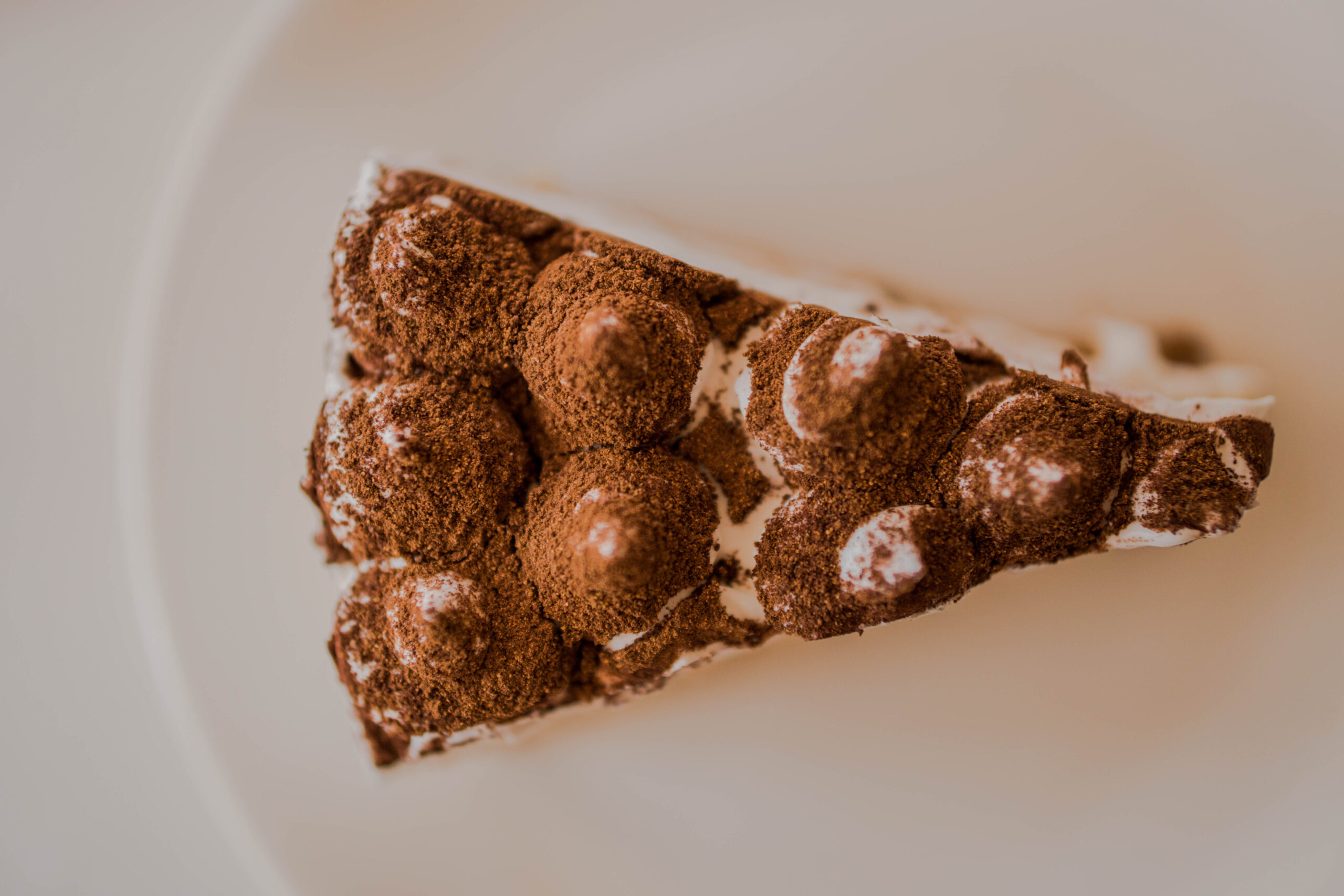
Benefits of Precision Cooking
Precision cooking goes hand in hand with the use of food scales, providing an array of benefits that can greatly enhance your culinary endeavors.
Consistency in Recipes
One of the primary advantages of precision cooking is the ability to reproduce your favorite recipes with consistent results every time. By accurately measuring your ingredients using a food scale, you can ensure that the flavor, texture, and overall composition of your dishes remain consistent. This is particularly crucial for professional chefs or individuals who enjoy experimenting and developing their own recipes. Precision cooking allows you to refine your creations and deliver consistent quality to those who appreciate your culinary skills.
Accurate Nutrition Tracking
For individuals with specific dietary requirements or those who are conscious of their calorie intake, precision cooking with the aid of a food scale is invaluable. By accurately weighing your ingredients and using reliable nutritional information, you can calculate the exact nutritional content of your meals. This allows for better control of your diet and helps you make informed decisions about the foods you consume. Whether you’re maintaining a specific macronutrient balance or monitoring your calorie intake, precision cooking enables accurate nutrition tracking and supports your health and wellness goals.
Portion Control
Portion control is essential for maintaining a healthy and balanced diet. Precision cooking with a food scale allows you to accurately measure and portion out your meals, ensuring that you consume the right amount of food for your needs. Whether you’re aiming to lose weight, gain muscle, or simply prioritize your health, a food scale can be a valuable tool in maintaining portion control and preventing overeating. By having control over portion sizes, you can effectively manage your calorie intake and make better choices for your overall well-being.
Enhanced Baking
Baking is a science that relies heavily on precise measurements and ratios. Using a food scale in baking can greatly enhance your results by allowing you to accurately measure ingredients such as flour, sugar, and butter. Baking recipes often provide measurements in weight rather than volume to ensure consistency and avoid discrepancies caused by differences in measuring techniques. With a food scale, you can easily follow baking recipes and achieve the perfect balance of ingredients, resulting in beautifully risen cakes, flaky pastries, and delicious treats that are sure to impress.
Use Cases for Food Scales
Food scales have a wide range of applications in various culinary tasks. From baking to meal planning and prep, here are some common use cases where a food scale can be incredibly useful.
Baking
As mentioned earlier, baking often requires precise measurements to achieve the desired results. Using a food scale in baking ensures accuracy when measuring dry ingredients like flour, sugar, and cocoa powder. It allows you to avoid common pitfalls such as packing flour into a measuring cup, which can lead to a heavier and denser final product. With a food scale, you can easily follow baking recipes and achieve consistent, delectable treats every time.
Cooking
Food scales are equally valuable in cooking dishes beyond baking. Whether you’re following a recipe or experimenting with your own creations, accurate measurements are crucial to achieve the desired flavors and textures. A food scale helps you measure ingredients like protein, grains, or vegetables precisely, ensuring that you strike the perfect balance within your culinary masterpiece. From traditional family recipes to exciting new dishes, using a food scale in cooking allows you to create consistent and delicious meals.
Portioning Meals
If you’re following a specific dietary plan or simply aiming to control your portion sizes, a food scale is indispensable for portioning out your meals. By weighing your food, you can ensure that you’re consuming the desired amount of macronutrients and calories. This is particularly helpful if you’re meal prepping or trying to manage portion control for weight management. A food scale provides a reliable method to accurately portion your meals and aids in maintaining dietary goals.
Meal Planning and Prep
Meal planning and prep can be made more efficient and accurate with the help of a food scale. When batch cooking or preparing several portions at once, a food scale allows you to divide ingredients evenly, ensuring that each serving receives the appropriate amount. Whether you’re portioning out proteins, starches, or vegetables, a food scale helps you maintain consistency and saves time in the long run. By using a food scale in meal planning, you can also simplify grocery shopping by estimating the quantity of ingredients you’ll need more accurately.
Tips for Successful Precision Cooking
To make the most out of your food scale and achieve precise cooking results, here are some helpful tips to keep in mind.
Measure Ingredients Properly
When using a food scale, it’s important to measure your ingredients accurately. Follow the recipe closely and double-check measurements to avoid mistakes. Use a scale with adequate sensitivity to ensure that you’re obtaining precise weights, especially for small quantities. Additionally, ensure that your scale is properly calibrated to maintain accuracy.
Follow Recipes Closely
Precision cooking relies on following recipes closely, especially when it comes to measurements. Pay attention to whether the recipe specifies measurements in weight or volume. When working with volume-based measurements, such as cups or tablespoons, consider converting them to weight measurements for more precise results. Follow the steps and instructions meticulously to create flavors and textures that match the intended outcome.
Experiment and Adjust
While precision cooking emphasizes accuracy, don’t be afraid to experiment and make adjustments to suit your taste preferences. Once you’ve mastered the fundamentals of precise measurements, feel free to tweak the recipe to add your personal touch. Keep notes of the adjustments you make, so you can recreate your successful variations in the future.
Convert Measurements
It’s common for recipes to provide ingredient measurements in different units, such as grams, ounces, or cups. Familiarize yourself with converting these measurements to ensure consistency when following recipes. Understanding equivalent measurements can help you adapt and make adjustments based on the units provided in a recipe, allowing you to achieve accurate results.
Additional Tools for Precision Cooking
While a food scale is an essential tool for precision cooking, several other tools can further elevate your culinary skills. These tools work in conjunction with food scales to provide comprehensive control and accuracy in your cooking endeavors.
Measuring Cups and Spoons
Measuring cups and spoons are a staple in any kitchen and are frequently used alongside food scales. They allow for precise measurements of liquid ingredients or small quantities of dry ingredients when needed. When using measuring cups or spoons, ensure that you’re leveling off the ingredients to remove any excess and obtain accurate measurements.
Digital Thermometers
Digital thermometers are crucial for precision cooking, particularly when it comes to meat or delicate desserts. Accurate temperature readings ensure that your food is cooked to perfection, whether it requires precise internal temperatures or specific degrees for candy making. Blend the accuracy of digital thermometers with the precision of a food scale to achieve consistent and delicious results.
Oven Thermometers
An oven thermometer is a handy tool for precision cooking, as it allows you to verify and adjust the accuracy of your oven’s temperature. Ovens can sometimes have temperature variations, even when set to a specific degree. By using an oven thermometer, you can ensure that your oven is heating to the desired temperature, leading to evenly cooked and perfectly browned dishes.
Immersion Blenders
Immersion blenders, also known as hand blenders, are versatile tools that can be a great aid in achieving precision when creating smooth soups, sauces, or purees. By allowing you to blend directly in the pot or container, immersion blenders provide convenience and accuracy in achieving the desired consistency of your dishes. Pairing this tool with a food scale can help you precisely measure and blend ingredients to create impressive textures in your recipes.
Precision Cooking in Professional Kitchens
Precision cooking has long been embraced in professional kitchens, where consistency, efficiency, and quality are of utmost importance. Food scales play a pivotal role in ensuring precision and accuracy, enabling chefs to produce remarkable dishes and elevate their culinary creations.
Benefits of Precision Cooking in Restaurants
In a restaurant setting, precision cooking is essential to maintain the quality of dishes consistently. With a food scale, chefs can follow recipes precisely and measure ingredients accurately, ensuring that each dish meets the high standards set by the establishment. Whether it’s a signature dish or a seasonal offering, precision cooking guarantees that customers receive the same delicious experience with each visit.
Advantages for Chefs
For chefs, precision cooking is not only about maintaining consistency but also about honing their skills and creativity. By using food scales and other precision tools, chefs can experiment with flavors, textures, and techniques, confident that measurements are accurate and reproducible. This allows them to push culinary boundaries and deliver exceptional dining experiences to their patrons.
Improving Efficiency and Consistency
Precision cooking streamlines kitchen operations, leading to increased efficiency and consistency. When each chef follows precise measurements and techniques, dishes can be prepared in a systematic manner, reducing errors and ensuring timely service. Additionally, with consistent measurements, inventory management becomes more efficient, enabling better cost control and waste reduction.
The Future of Food Scales
As technology continues to advance, food scales are also evolving to meet the demands of modern cooking. Here are some exciting developments shaping the future of food scales.
Smart and Connected Scales
Smart food scales are becoming more prevalent, offering enhanced connectivity and functionality. These scales can be synced with smartphones or tablets, allowing for real-time tracking of measurements, recipe suggestions, and nutritional analysis. With Bluetooth or Wi-Fi capabilities, smart scales can seamlessly integrate with other kitchen devices, making cooking more intuitive and connected than ever before.
Integration with Recipe Apps
The future of food scales lies in their integration with recipe apps and digital platforms. With recipe apps that provide step-by-step instructions and real-time measurement tracking, food scales can enhance the cooking experience by guiding users through the entire process. These integrated systems can ensure precise measurements and help individuals achieve their desired cooking outcomes with ease.
Enhanced Features and Functionality
As technology continues to advance, food scales will likely offer even more features and functionalities. From built-in timers and temperature sensors to voice command capabilities, the possibilities are endless. Scales may also incorporate machine learning and artificial intelligence algorithms to provide personalized cooking suggestions and improve overall user experience.
In conclusion, food scales are indispensable tools for precision cooking. The benefits they offer, such as accurate measurements, consistent results, and portion control, are valuable in both home kitchens and professional culinary settings. By understanding the different types of food scales available and considering the features that matter most to you, you can choose the perfect scale to suit your cooking needs. Whether you’re baking, cooking, portioning meals, or planning your culinary adventures, a food scale is an essential companion for achieving precise and delicious results. As technology advances, the future of food scales promises even more exciting possibilities, enhancing our cooking experiences and empowering us to create culinary masterpieces with ease and precision.
